 On January 20th, Donald Trump will be inaugurated for his second term as President of the United States. President Trump won the national election with 312 electoral votes over Kamala Harris’ 226. In New Jersey, Trump did not get the win, however his loss by fewer than 250,000 votes (<6%) was an extremely close margin for the Garden State.
On January 20th, Donald Trump will be inaugurated for his second term as President of the United States. President Trump won the national election with 312 electoral votes over Kamala Harris’ 226. In New Jersey, Trump did not get the win, however his loss by fewer than 250,000 votes (<6%) was an extremely close margin for the Garden State.
Where the vote was not nearly as close was in Mercer County, where Harris earned 65.67% of the votes compared to Trump’s 31.92%. In municipalities such as Hamilton and Robbinsville, there was much stronger Trump support than elsewhere in the county, with Trump earning 46% of votes in Hamilton and nearly 43% in Robbinsville.
Most of those that support President Trump are looking forward to the changes that could come about when he takes over the reins later this month. Most Harris supporters are more skeptical. Democratic Mercer County Executive Dan Benson told Princeton Perspectives, “I can’t think of an administration more diametrically different than myself from a policy perspective, as evident by Trump’s support of policies as outlined in Project 2025. At a county level, the biggest concern will be potential federal cuts to essential social safety net programs and county infrastructure investments.”
While Trump has publicly distanced himself from Project 2025, he has spoken of desires for various policy changes and, during his previous term in office, attempted to make some of them. Time will tell what comes to fruition, but there are thoughts about direct impacts they could have on those living in Mercer County.
SOCIAL SAFETY NETS
 As Benson alluded to, Trump made some waiver changes to Medicaid during his first term, such as work requirements. They were removed under the Biden administration, but there is an expectation those may come back when he returns to office. Also of concern for lower income residents, there is speculation Trump may attempt once again to make cuts to institutions like the Supplemental Nutrition Assistance Program (SNAP), which enables food insecure households to purchase what they need.
As Benson alluded to, Trump made some waiver changes to Medicaid during his first term, such as work requirements. They were removed under the Biden administration, but there is an expectation those may come back when he returns to office. Also of concern for lower income residents, there is speculation Trump may attempt once again to make cuts to institutions like the Supplemental Nutrition Assistance Program (SNAP), which enables food insecure households to purchase what they need.
More than 20,000 Mercer households participated in SNAP as of April 2024. Food insecurity is a major concern, and Mercer County already has numerous organizations such as Meals on Wheels, Trenton Area Soup Kitchen, Jewish Family & Children’s Service and Princeton Mobile Food Pantry providing groceries and meals to those that need. Locals might become more heavily reliant on such assistance should the largest federal welfare program, which was supported by over $112B federal funds in 2023, face reductions or restrictions
“While the future of federal programs like SNAP remains uncertain, any potential reductions could significantly impact vulnerable residents in our community,” explains Rhodalynn Jones, Princeton Human Services Director. “Our mission is to actively enhance the quality of life for vulnerable, economically disadvantaged individuals, and those in need by coordinating essential programs and services, advocating for their well-being, and empowering those we serve. To that end, we remain vigilant and proactive, continually assessing our programs to ensure we are prepared to address any changes that may arise.”
No specific plans have been shared yet by the incoming Trump administration.
INFRASTRUCTURE SUPPORT
What is known is that one role of the next presidency will be doling out $294 billion towards state and local infrastructure projects as it rounds out the final two years of the Infrastructure Investment and Jobs Act (IIJA), also known as the “bipartisan Infrastructure law.” As Benson referenced, where and how Trump chooses to direct funding could have profound effects on projects around Mercer County. In 2024, County administration was awarded more than $53 million in federal grants to fund projects including the Lincoln Avenue Bridge Replacement in Trenton, a new taxiway and the terminal replacement project at Trenton Mercer Airport.
DEFEDERALIZING EDUCATION
 For funding and organizational reasons, Trump has repeatedly mentioned on the campaign trail desires to save money and improve education by adjusting or eliminating the U.S. Department of Education and sending further controls back to the states. He will not be the first President to attempt such reorganization, but it is not something he can unilaterally do.
For funding and organizational reasons, Trump has repeatedly mentioned on the campaign trail desires to save money and improve education by adjusting or eliminating the U.S. Department of Education and sending further controls back to the states. He will not be the first President to attempt such reorganization, but it is not something he can unilaterally do.
While much of the decision making about how schools run is already done at the state level, this department has some weighty responsibilities such as through the Office of Special Education & Rehabilitative Services as well as the Office for Civil Rights, which provide many opportunities and oversee protections for various students.
“Trenton Public Schools will continue to implement elements of Titles IX and VI until we are alerted of any changes. We are committed to provide all students equitable access to education and programming in Trenton,” says James Earle, Superintendent of Trenton Public Schools.
While life continues as is for now, Republicans are eager to let state and local agencies determine what is done in schools, as they say they know their populations better. Democrats are concerned about how well things will work, if eliminated or not all together under one department. In addition to what is provided by the offices mentioned above, public schools also rely on federal funding.
The U.S. Department of Education provides 4-12% of the overall funding for public schools. This, in addition to the approximately 37% in aid from NJ (Mercer County schools will get over $600M in state aid for schools in 2025), provides important assistance. New Jersey K-12 schools as a whole receive $2.81B in federal aid, but some districts rely on it more than others.
For example, to ensure high quality education, close achievement gaps and improve student outcomes, the federal government provides Title 1 money to schools based on the size of their low-income populations. Trenton Public School District received over $9M in Title 1 funds for the 2023-2024 school year ($7.5M Title 1 Part A and $1.8M Title 1 SIA).
“Trenton Public Schools receives a substantial amount of federal funding which is used to provide targeted supplemental support for students in Trenton. A reduction or elimination of these funds would significantly limit academic, social & emotional and mental health supports offered to students,” shares Earle. “Furthermore, these funds allow schools to connect with families when addressing issues such as chronic absenteeism, reading and math tutoring supports, and reading and math interventions at home.”
In total, Trenton schools got assistance from eight different federal funding sources last year. And beyond the capital city, at least half of Mercer County municipalities have also benefitted recently from Title I support and most districts appreciate other federal funding as well.
Beyond public schools, the U.S. Department of Education also handles loans and grants for higher education, which has some concerned. $2,410 per student was provided in NJ last year by the Federal government. Insiders say this important resource is not going anywhere.
Trump’s expressed desires are to eliminate what he deems the unnecessary parts of the DOE and distribute coverage of others to different departments. For example, the Department of Justice could take over the Office for Civil Rights and funding, such as under Title I, could be overseen by the Department of Health & Human Services. Critics are concerned about organizational chaos, and that without proper oversight, distribution disruption or even elimination could wreak havoc.
Congress would need to approve any changes to this government agency, which could be a hurdle.
DAYLIGHT SAVINGS TIME?
 What is more likely is a discussion amongst the new administration about whether or not the U.S. should continue the tradition of Daylight Savings Time. As 2024 was coming to an end, Trump posted on X, “Daylight Saving Time is inconvenient and very costly to our nation.”
What is more likely is a discussion amongst the new administration about whether or not the U.S. should continue the tradition of Daylight Savings Time. As 2024 was coming to an end, Trump posted on X, “Daylight Saving Time is inconvenient and very costly to our nation.”
The practice, where clocks jump forward an hour in the spring, and back an hour in the fall, began in the United States around 1918. In 1966 the Uniform Time Act made it a uniformed practice, giving states an opt out to remain in Standard time, which Hawaii and Arizona took advantage of. In 2022, the U.S. Senate passed the Sunshine Protection Act, aiming to make Daylight Savings Time permanent, but it never was finalized in the House. This leaves an opportunity for the Trump administration.
It is said that Daylight Savings Time was adopted in the U.S. during World War I, for the purpose of conserving energy. But there has been much research since to question whether that is an actual benefit. There has also been rumor that Daylight Savings Time was enacted to allow more use of daylight, particularly to benefit the farming industry. This has also been questioned. In fact, in 1919 farmers rallied against the time change citing “spring forward” costs them the early morning sunlight hours.
Mercer County has approximately 300 farms, the majority growing crops. It turns out Daylight Savings Time may not be as meaningful to their business as other concerns.
“We ignore daylight savings and it does not matter to us if it stays or goes. When it is lighter earlier, we start working earlier, and when the biannual time change hits we adjust our start and stop times accordingly so that our effective daylight schedule stays constant. Far more impactful to us on a work schedule is climate change, which has led to far hotter summers and the need to begin the day in the dark to beat the heat,” explains Jess Niederer, Owner and Operator of Chickadee Creek Farm in Pennington.
TARIFF-IC IMPACT
 Other Garden State businesses could also feel affects after Trump takes office, through his promise to raise tariffs on imports. His comments have predominantly targeted China, Canada and Mexico where it is has been said the increase would be to partly help American trade but also to curb the influx of fentanyl, said to be influenced by those countries. Last week, at a Mar-a-Lago press conference, the incoming President repeated part of this desire stating, “We’re going to put very serious tariffs on Mexico and Canada.”
Other Garden State businesses could also feel affects after Trump takes office, through his promise to raise tariffs on imports. His comments have predominantly targeted China, Canada and Mexico where it is has been said the increase would be to partly help American trade but also to curb the influx of fentanyl, said to be influenced by those countries. Last week, at a Mar-a-Lago press conference, the incoming President repeated part of this desire stating, “We’re going to put very serious tariffs on Mexico and Canada.”
Imports are an important part of the supply chain here in NJ. There are companies that import materials from China and use them to create goods they then export to Canada, for example. Canada is the largest importer of goods from New Jersey, and the top importer to New Jersey is China, so the impacts are felt very close to home. Those impacts could be both positive and negative.
In mid-December, Christopher Emigholz, Chief Government Affairs Officer for the New Jersey Business & Industry Association (NJBIA), testified to the NJ Assembly Oversight, Reform & Federal Relations Committee about the various impacts higher tariffs could bring to the Garden State. On the downside, he stated that retaliatory tariffs could threaten NJ exports, which are big business here. He added, they could also increase costs and cause inflation. On the flipside, if tariffs are carefully implemented so they are on products that are easily found stateside, Emigholz stated that could benefit our domestic operations. Additionally, if the government does not impose the tariffs on products that can only be found in a foreign nation, there could be less harm. Other positive impacts he testified to were that tariffs could be bargaining leverage for a more open and fair trading environment and tariffs could punish and correct bad actors, such as China.
“I think it is safe to say that all businesses as well as all consumers could be impacted by tariffs depending on how broad their implementation is. The biggest impact may be on manufacturers that either make, use, sell or compete against the products that may have tariffs, and there are about 500 manufacturing firms in Mercer County that employ about 14,000 people per the most recent data from NJMEP,” Emigholz told Princeton Perspectives. “Their supply chain and sales to other nations may be majorly disrupted. And what is great about manufacturers, but hurts more in this context, is that manufacturers have one of the biggest multipliers of any business in the economy, so any impact is magnified for the better or for the worse in this case.”
According to the International Trade Administration, from 2014-2023 New Jersey imported $144.3B worth of goods and exported $43.3B. As it relates to the impending tariffs, $13.6B of imports in 2023 came from China, $8.9B from Canada. In Mercer County, businesses are bracing to see what is to come.
Buildings material supplier Hamilton Building Supply says it is hard to know how or if tariffs will impact their business, so right now much is conjecture. But they do import most of their framing lumber from Canada, and that makes up 20% of their business.
“We’ve seen tariffs in the past and there’s been minimal impacts on our products, based on the magnitude of products that get effected, “explains John Perner, President & CEO Hamilton Building Supply. He says representatives at lumber mills are providing them insight into current and future pricing and at least for the foreseeable future, it is business as usual for 2025. “The other part is there’s other manufacturers we work with for windows, doors and molding that may import raw materials like pine from South America and other soft woods from Canada. That could have an impact on the cost of raw materials that goes into how windows are built and other specialty items and that could impact costs of materials at our yard.”
Perner adds a potential positive is that approximately 80% of his business comes from American-made products. If there is parity in pricing between American-made products and those from oversees, he expects the American manufacturers will get more support.
For the average Mercer County resident, it is possible increased tariffs could impact inflation. Emigholz suggests that those who work at manufacturing, trade or logistics could potentially feel a hit in terms of wage/benefit increases, hiring or even job cuts.
WHAT 2025 WILL BRING
There are still nearly two weeks left until the 47th Presidency begins. Until then, everything is talk and speculation. Should Trump go forward with any of the items mentioned above, it will likely take time to implement the changes and more so to see and feel their impacts. Princeton Perspectives will stay on top of any major affects to come.
Lisa Jacknow spent years working in national and local news in and around New York City before moving to Princeton. Working as both a TV producer and news reporter, Lisa came to this area to focus on the local news of Mercer County at WZBN-TV. In recent years, she got immersed in the Princeton community by serving leadership roles at local schools in addition to volunteering for other local non-profits. In her free time, Lisa loves to spend time with her family, play tennis, sing and play the piano. A graduate of the S. I. Newhouse School of Public Communications at Syracuse University, Lisa was raised just north of Boston, Massachusetts but has lived in the tri-state area since college. She is excited to be Editor and head writer for Princeton Perspectives!
 Welcome, 2025! It’s a New Year, and that Means Changes Are-a-Coming! So, that’s what we’re writing about in this month’s issue of Princeton Perspectives.
Welcome, 2025! It’s a New Year, and that Means Changes Are-a-Coming! So, that’s what we’re writing about in this month’s issue of Princeton Perspectives.

 On January 20th, Donald Trump will be inaugurated for his second term as President of the United States. President Trump won the national election with 312 electoral votes over Kamala Harris’ 226. In New Jersey, Trump did not get the win, however his loss by fewer than 250,000 votes (<6%) was an extremely close margin for the Garden State.
On January 20th, Donald Trump will be inaugurated for his second term as President of the United States. President Trump won the national election with 312 electoral votes over Kamala Harris’ 226. In New Jersey, Trump did not get the win, however his loss by fewer than 250,000 votes (<6%) was an extremely close margin for the Garden State. As Benson alluded to, Trump made some waiver changes to
As Benson alluded to, Trump made some waiver changes to  For funding and organizational reasons, Trump has repeatedly mentioned on the campaign trail desires to save money and improve education by adjusting or eliminating the
For funding and organizational reasons, Trump has repeatedly mentioned on the campaign trail desires to save money and improve education by adjusting or eliminating the  What is more likely is a discussion amongst the new administration about whether or not the U.S. should continue the tradition of Daylight Savings Time. As 2024 was coming to an end, Trump posted on X, “Daylight Saving Time is inconvenient and very costly to our nation.”
What is more likely is a discussion amongst the new administration about whether or not the U.S. should continue the tradition of Daylight Savings Time. As 2024 was coming to an end, Trump posted on X, “Daylight Saving Time is inconvenient and very costly to our nation.” Other Garden State businesses could also feel affects after Trump takes office, through his promise to raise tariffs on imports. His comments have predominantly targeted China, Canada and Mexico where it is has been said the increase would be to partly help American trade but also to curb the influx of fentanyl, said to be influenced by those countries. Last week, at a Mar-a-Lago press conference, the incoming President repeated part of this desire stating, “We’re going to put very serious tariffs on Mexico and Canada.”
Other Garden State businesses could also feel affects after Trump takes office, through his promise to raise tariffs on imports. His comments have predominantly targeted China, Canada and Mexico where it is has been said the increase would be to partly help American trade but also to curb the influx of fentanyl, said to be influenced by those countries. Last week, at a Mar-a-Lago press conference, the incoming President repeated part of this desire stating, “We’re going to put very serious tariffs on Mexico and Canada.” Did you know that you are supporting New Jersey’s critical infrastructure needs each time you fill up your tank at the gas station? And, as of January 1st, you are supporting it with an additional 2.6 cents per gallon.
Did you know that you are supporting New Jersey’s critical infrastructure needs each time you fill up your tank at the gas station? And, as of January 1st, you are supporting it with an additional 2.6 cents per gallon.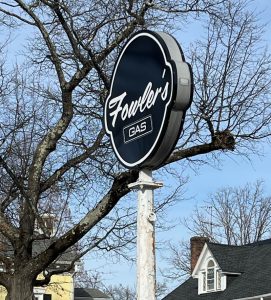 At
At  “I have a deal for commission based on a per gallon incentive. No matter the prices, I get paid for each gallon I sell,” owner Sunny explains.
“I have a deal for commission based on a per gallon incentive. No matter the prices, I get paid for each gallon I sell,” owner Sunny explains. Nearby Griggstown Farm resident says not only is the increase having no impact on him, he’s buying premium these days. “I am putting 93 in. I am trying to wash the engine right now,” explains Hasan Ahun. “I knew the gas tax was going up, but it’s OK, I need it.”
Nearby Griggstown Farm resident says not only is the increase having no impact on him, he’s buying premium these days. “I am putting 93 in. I am trying to wash the engine right now,” explains Hasan Ahun. “I knew the gas tax was going up, but it’s OK, I need it.”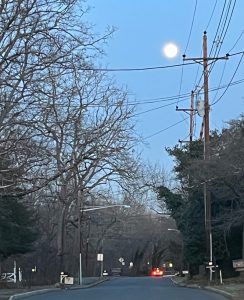 It is easier, at this time of year, to think of and do for others. Up to 35% of annual donations are said to be made in December. Yet, even now, and especially throughout the rest of the year, we can get caught up in our own lives. Not necessarily thinking about what others are experiencing, or the ways in which our choices can impact them.
It is easier, at this time of year, to think of and do for others. Up to 35% of annual donations are said to be made in December. Yet, even now, and especially throughout the rest of the year, we can get caught up in our own lives. Not necessarily thinking about what others are experiencing, or the ways in which our choices can impact them.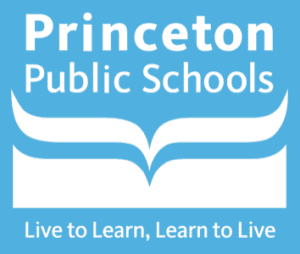 On January 28, 2025, Princeton voters will be invited to the polls (or can have the opportunity to return Mail-in ballots) to cast their vote for the latest
On January 28, 2025, Princeton voters will be invited to the polls (or can have the opportunity to return Mail-in ballots) to cast their vote for the latest 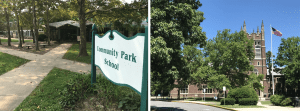 Question 1 ($37.9M) will allow for expansion at
Question 1 ($37.9M) will allow for expansion at 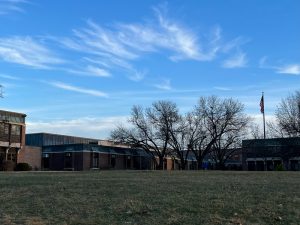 Question 2 ($38.3M) provides for expansion of the vocal music and bands rooms at
Question 2 ($38.3M) provides for expansion of the vocal music and bands rooms at 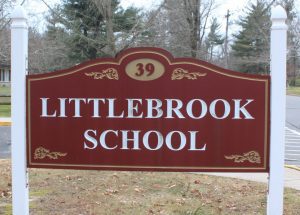 Questions 3 ($12.9M) would cover costs for
Questions 3 ($12.9M) would cover costs for  In a few larger school districts around New Jersey, such as
In a few larger school districts around New Jersey, such as 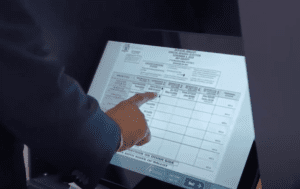 Another financial concern that has been raised by members of the community is why the referendum vote is taking place as a special election, at additional cost to the district, rather than paired with the General Election held back in November. Turnout is also a concern. The 2024 General election had votes cast by 55.6% of registered voters compared to recent special referendum elections such as in 2018 (18.67% turnout) and 2022 (17.66% turnout). As we shared in the
Another financial concern that has been raised by members of the community is why the referendum vote is taking place as a special election, at additional cost to the district, rather than paired with the General Election held back in November. Turnout is also a concern. The 2024 General election had votes cast by 55.6% of registered voters compared to recent special referendum elections such as in 2018 (18.67% turnout) and 2022 (17.66% turnout). As we shared in the 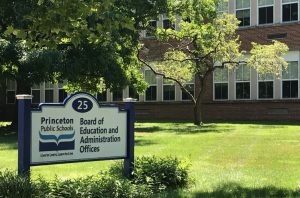 PPS says there will be substantial redistricting and increases to class sizes if the referendums do not pass. It says one reason the referendum is needed is due to 1,000 additional units of housing garnered through the multi-unit developments recently built, such as at
PPS says there will be substantial redistricting and increases to class sizes if the referendums do not pass. It says one reason the referendum is needed is due to 1,000 additional units of housing garnered through the multi-unit developments recently built, such as at 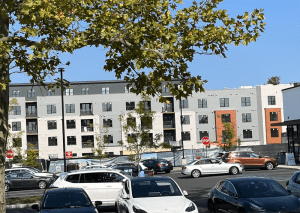 Why aren’t monies from the PILOTs immediately offsetting the increased enrollment and limiting the need for referendum? Of the three major developments recently built, much of the money from the PILOT agreements has been redirected, as part of the agreement to build. For example, at Avalon Princeton Circle, PILOT monies funded Thanet Development – Princeton Senior Living affordable senior housing. At The Alice, remediation, sustainability elements and the addition of public pedestrian/bike paths are some uses of those funds.
Why aren’t monies from the PILOTs immediately offsetting the increased enrollment and limiting the need for referendum? Of the three major developments recently built, much of the money from the PILOT agreements has been redirected, as part of the agreement to build. For example, at Avalon Princeton Circle, PILOT monies funded Thanet Development – Princeton Senior Living affordable senior housing. At The Alice, remediation, sustainability elements and the addition of public pedestrian/bike paths are some uses of those funds. Though many are feeling the pressure of additional taxation, PPS says some changes are needed. The additions of students from the current apartment units and those expected to be built in the near future are expected to be added primarily in the Community Park area as well as in Littlebrook. That is why additions are specifically recommended at those schools, as well as at Princeton Middle School and Princeton High School. The construction timeline for the referendum items would likely run into 2028, when an expected fuller impact of additional students will be here.
Though many are feeling the pressure of additional taxation, PPS says some changes are needed. The additions of students from the current apartment units and those expected to be built in the near future are expected to be added primarily in the Community Park area as well as in Littlebrook. That is why additions are specifically recommended at those schools, as well as at Princeton Middle School and Princeton High School. The construction timeline for the referendum items would likely run into 2028, when an expected fuller impact of additional students will be here.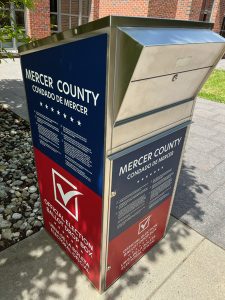 Mail-in ballots can be returned a few ways:
Mail-in ballots can be returned a few ways: As the end of the year approaches, we are surrounded by positive vibes. First of Thanksgiving and then the winter holidays. We tend to be inundated with music, lights and uplifting spirits of the season. The idea is to spread joy and to ensure that those around you, despite what they’re going through, are also feeling that joy. Many assume all others are feeling joyous, too.
As the end of the year approaches, we are surrounded by positive vibes. First of Thanksgiving and then the winter holidays. We tend to be inundated with music, lights and uplifting spirits of the season. The idea is to spread joy and to ensure that those around you, despite what they’re going through, are also feeling that joy. Many assume all others are feeling joyous, too.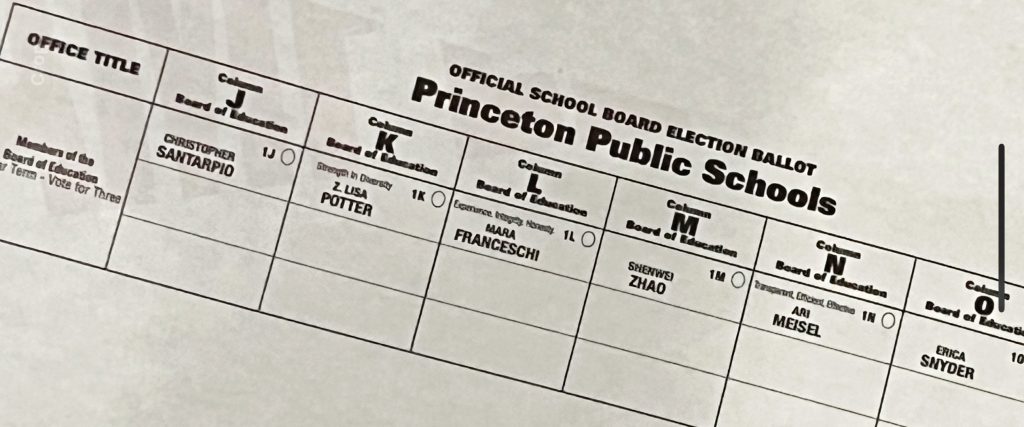 When a candidate throws their hat into the ring, they know that will mean unearthing of anything and everything they may have said or done. Though sometimes difficult, they open themselves up to that scrutiny. What is harder to swallow is when the accusations are not election-focused, or appear targeted and hate filled. Were you aware this happened in Princeton?
When a candidate throws their hat into the ring, they know that will mean unearthing of anything and everything they may have said or done. Though sometimes difficult, they open themselves up to that scrutiny. What is harder to swallow is when the accusations are not election-focused, or appear targeted and hate filled. Were you aware this happened in Princeton? While going for his morning run on November 12th, Princeton resident Oleg Bleyman came upon a sticker attached to a light pole on Harrison Street. The sticker contained an image of Donald Trump, wearing a top hat with a Jewish star on it and the words “I want YOU to die for Israel” followed by “because I’m owned by Jews.” A small sign, it was a subtle way to spread not just a political attack, but Jew-hatred.
While going for his morning run on November 12th, Princeton resident Oleg Bleyman came upon a sticker attached to a light pole on Harrison Street. The sticker contained an image of Donald Trump, wearing a top hat with a Jewish star on it and the words “I want YOU to die for Israel” followed by “because I’m owned by Jews.” A small sign, it was a subtle way to spread not just a political attack, but Jew-hatred.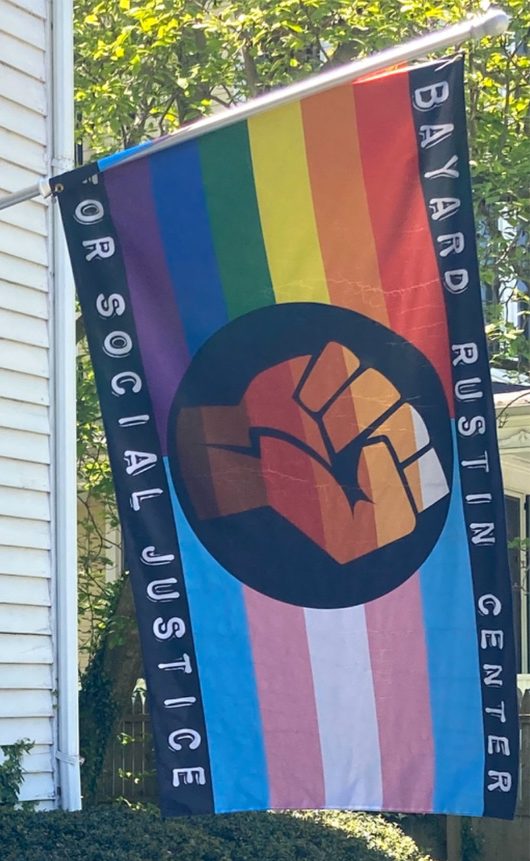 “What we’ve noticed most is an overwhelming feeling of despair, a lack of hope, and a true fear for physical and emotional safety, the ability for people to continue existing as they are, being respected for who they are, being able to love who they want,” notes Dr. Sara Wasserman,
“What we’ve noticed most is an overwhelming feeling of despair, a lack of hope, and a true fear for physical and emotional safety, the ability for people to continue existing as they are, being respected for who they are, being able to love who they want,” notes Dr. Sara Wasserman, 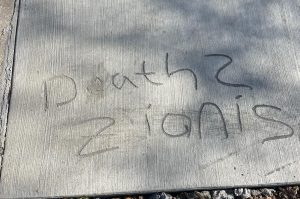 The concrete was left wet overnight as crews poured new sidewalks at the entrance to the neighborhood. On the morning of November 16th, local residents woke up to find “Death 2 Zionists” had been etched into it. Jewish parents shared numerous concerns that such words go beyond evoking concern for Palestinians, with death threats to those that believe in the right to the Jewish historic homeland.
The concrete was left wet overnight as crews poured new sidewalks at the entrance to the neighborhood. On the morning of November 16th, local residents woke up to find “Death 2 Zionists” had been etched into it. Jewish parents shared numerous concerns that such words go beyond evoking concern for Palestinians, with death threats to those that believe in the right to the Jewish historic homeland.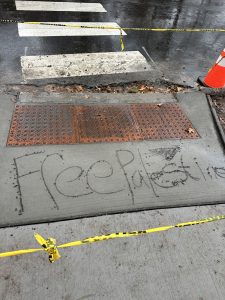 That sidewalk was promptly removed, and clean concrete poured to cover up the message, only for more to come. On November 26th, newly poured sidewalks in Ettl Farm had new graffiti, this time with the words “Free Palestine” and “Gaza Rise.” The culprit added to the words an image of an upside-down triangle, defined by American Jewish Committee as a symbol meant “to identify, harass, and target Israelis and Jews.”
That sidewalk was promptly removed, and clean concrete poured to cover up the message, only for more to come. On November 26th, newly poured sidewalks in Ettl Farm had new graffiti, this time with the words “Free Palestine” and “Gaza Rise.” The culprit added to the words an image of an upside-down triangle, defined by American Jewish Committee as a symbol meant “to identify, harass, and target Israelis and Jews.” Have you gone shopping recently (with holiday music on repeat throughout the store), and later found yourself humming a holiday tune in your kitchen? Have you thought about what you will wear to your annual holiday work gathering? Whether you observe any of the upcoming holidays or not, our society has made them a part of life. And, you tend to get involved somehow, whether it’s in adopting the positive spirit of the season, contributing to food or clothes drives, or by delving in to prepare the meal and gathering with family or friends to celebrate.
Have you gone shopping recently (with holiday music on repeat throughout the store), and later found yourself humming a holiday tune in your kitchen? Have you thought about what you will wear to your annual holiday work gathering? Whether you observe any of the upcoming holidays or not, our society has made them a part of life. And, you tend to get involved somehow, whether it’s in adopting the positive spirit of the season, contributing to food or clothes drives, or by delving in to prepare the meal and gathering with family or friends to celebrate.